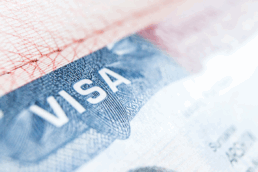The most up to date U.S. Citizenship and Immigration Services (USCIS) policy memo on the adjudication of H-1B petitions for nursing position was issued in 2015, making it still applicable today. Its purpose was to assist USCIS officers in deciding whether or not a nursing position meets the definition of a specialty occupation.
H-1B Specialty Occupation Requirements
The H-1B visa category allows U.S. employers (petitioners) to petition to hire employees (beneficiaries) to work in specialty occupations. In this context, “specialty occupation” means an occupation that requires: (1) theoretical and practical application of a body of highly specialized knowledge; and (2) attainment of a bachelor’s or higher degree in the specific specialty (or its equivalent) as a minimum requirement for entry into the occupation in the United States.
To qualify as a specialty occupation, the regulations require that the petitioner demonstrate that the position meets at least one of the following criteria:
- A bachelor’s or higher degree or its equivalent is normally the minimum requirement for entry into the particular position;
- The degree requirement is common to the industry in parallel positions among similar organizations or, in the alternative, an employer may show that its particular position is so complex or unique that it can be performed only by an individual with a degree;
- The employer normally requires a degree or its equivalent for the position; or
- The nature of the duties is so specialized and complex that the knowledge required to perform the duties is usually associated with the attainment of a baccalaureate or higher degree.
Registered Nurses
Generally, positions that require nurses who are certified Registered Nurses (RNs) are not qualified as a specialty occupation. This is because most RN specialties do not normally require a U.S. bachelor’s or higher degree in nursing (or its equivalent). However, if a specific specialty normally does require at least a bachelor’s degree in nursing (BSN) (or its equivalent), then it will qualify. Additionally, if a healthcare organization has achieved “Magnet status” from the American Nurses Credentialing Center (ANCC) Magnet Recognition Program, then a position at that institution will most likely qualify because it shows that it has attained a number of high standards relating to quality and standards of nursing practice.
RNs’ duties and titles often depend on where they work and the patients with whom they work. Depending on the facts of the case, some of the following RN positions may qualify as specialty occupations:
- Addiction nurse
- Cardiovascular nurse
- Emergency room nurse
- Genetic nurse
- Neonatology nurse
- Nephrology nurse
- Oncology nurse
- Pediatric nurse
- Peri-Operative (Operating Room) nurse
- Rehabilitation nurse
Note that if a state requires a BSN to obtain a nursing license, then any RN position in that state would generally qualify as a specialty occupation. However, at this time, no state requires a BSN for licensure.
Advanced Practice Registered Nurses
Generally, positions that require nurses who are certified Advanced Practice Registered Nurses (APRNs) are qualified as a specialty occupation. APRN defines a level of nursing practice that utilizes extended and expanded skills, experience and knowledge in assessment, planning, implementation, diagnosis and evaluation of the care required. However, having a degree is not, by itself, sufficient for the position to qualify for H-1B classification. Thus, the specific specialty must still normally require at least a BSN (or its equivalent).
While the burden is on the petitioner to establish eligibility for the benefit sought, generally, the following is a non-exhaustive list of APRN occupations that may satisfy the requirements for a specialty occupation:
- Certified Nurse-Midwife (CNM);
- Certified Clinical Nurse Specialist (CNS);
- Certified Nurse Practitioner (CNP); and
- Certified Registered Nurse Anesthetist (CRNA).
Evidence to Establish a Position Qualifies as a Specialty Occupation
USCIS is required to follow long-standing legal standards and determine whether the proffered position qualifies as a specialty occupation, and whether a beneficiary is qualified for the position at the time the nonimmigrant visa petition is filed. When submitting an H-1B petition, the petitioner must show by a “preponderance of the evidence” that the proffered position qualifies as a specialty occupation. This means that the petitioner must show that what it claims is more likely the case than not. In determining whether a petitioner meets this standard, USCIS will consider all of the evidence in the record of proceeding.
Usually, a petitioner will submit the following documentation to establish that a nursing position qualifies as a specialty occupation under the H-1B category:
- The nature of the petitioner’s business;
- Industry practices;
- A detailed description of the duties to be performed within the petitioner’s business operations;
- Advanced certification requirements;
- ANCC Magnet Recognized status;
- Clinical experience requirements;
- Training in the specialty requirements; and
- Wage rate relative to others within the occupation.
In sum, most RN positions do not qualify as a specialty occupation, but there are some situations where the petitioner may be able to show that a nursing position qualifies as a specialty occupation, such as an APRN position.
Ready to have Berardi on your side?
Whether you’re a business looking to hire or a professional hoping to relocate, immigration law can be complicated. But you don’t have to do it alone. Put our experience to work for you.


